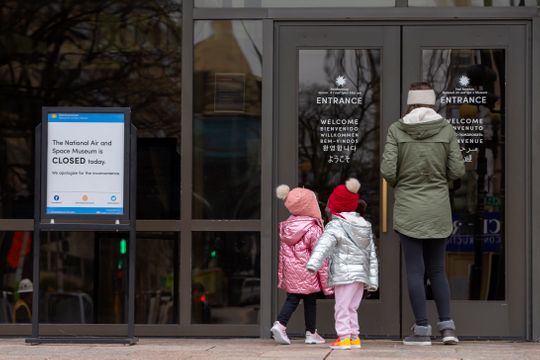With the current partial government shutdown now holding the record as the longest one in American history, effects of the closure continue to build. We’ve been hearing a lot about the consequences around employment – or lack of employment. From the 53,000 TSA agents working without pay to the $3.65 billion owed to federal workers who are still showing up at work – these shutdowns have already affected over 800,000 Americans with deferred payment. And as of Wednesday, there was $1.18 billion of labor lost due the shutdown.1

Source: usatoday.com (Photo: Erik S. Lesser/epa-EFE)
As the shutdown continues, the lack of a bi-weekly payment for furloughed federal employees could become the tip of a very big iceberg. More and more federally funded programs may shut down as their reserve funding runs dry. If the shutdown continues, a significant ripple effect could disrupt even more of the population, especially those of low- and moderate-income.
Millions of low- and moderate-income households rely on the federal government to help pay rent, and regardless of whether the renter is a furloughed federal worker, these households could lose their housing assistance if the shutdown persists.
There are a variety of Section 8 subsidies such as project-based rental assistance contracts, which are government contracts with building owners to accept lower rents with the remainder rent being government subsidized. The second is a voucher program where qualified tenants receive direct rental assistance from the government to afford the full rent payment.
Contracts for the project-based subsidies have already been affected by the government shutdown and more will continue to expire in the coming months. The Department of Housing and Urban Development (HUD) suggest that landlords whose contracts have expired will dip into reserves over immediately kicking out their tenants until the shutdown ends. However, depending on the length of the shutdown, these owners could deplete these funds quickly and require higher rent payments to pay the mortgage. In addition, the tenant-based voucher program will no longer have any funding in March and renters in those households, including 2.4 million Americans – two-thirds of which are seniors or people with disabilities – could begin to face immediate eviction.2
Diane Yentel, the director of National Low-Income Housing Collation said, “The longer the shutdown goes on, the more untenable it becomes for owners to keep scraping by without the federal funds they’re expecting ― and the more likely it becomes that those owners will start resorting to rent hikes or evictions of these lowest-income renters.”3
And it doesn’t stop there. If the USDA’s Supplemental Nutrition Assistance Program can only guarantee food stamps through the end of February, over 38 million Americans could lose their food benefits.4
Although history suggests that the shutdown will end before matters progress to this point, clearly this shutdown has already shown a negative impact to people and communities nationwide.
{{cta(‘f4b37e06-8cce-4e20-ab5a-781e3a0ea30b’,’justifycenter’)}}
1 https://www.statista.com/topics/5085/2019-us-government-shutdown/
